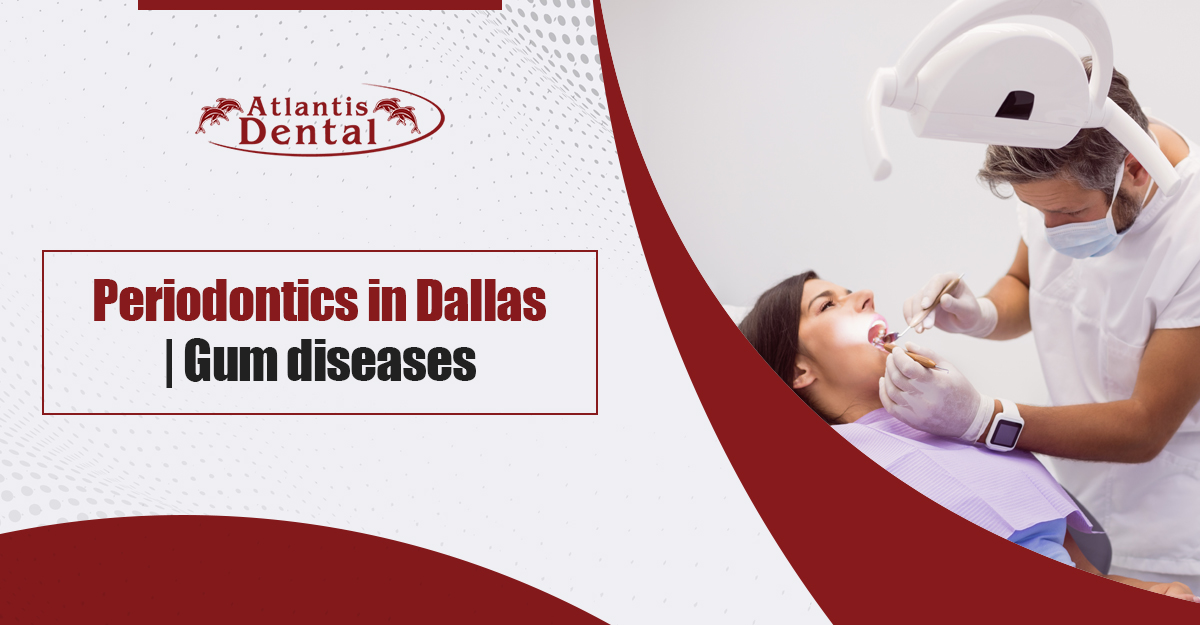As experts in the field of periodontal health, we understand the importance of maintaining healthy gums. Gum disease, also known as periodontal disease, is a common condition that affects many people.
In fact, it is estimated that nearly half of all adults in the United States have some form of periodontal disease. This condition can cause a range of symptoms, from minor gum inflammation to serious damage to the gums and surrounding tissues.
At Atlantis Dental Care, we are dedicated to providing our patients with the information and tools they need to maintain healthy gums and prevent periodontal disease.
In this article, we will explore the causes, treatments & preventing for gum disease, as well as provide tips for maintaining good oral health.
Causes of Gum Disease
Gum disease is caused by a buildup of bacteria and plaque on the teeth and gums. When these substances are not removed through regular brushing and flossing, they can cause inflammation and irritation of the gums. This can lead to a range of symptoms, including redness, swelling, bleeding, and tenderness.
There are a number of factors that can increase your risk of developing gum disease. These include:
- Poor oral hygiene
- Smoking and tobacco use
- Certain medications
- Hormonal changes, such as those that occur during pregnancy
- Genetics
- Chronic diseases such as diabetes
- Symptoms of Gum Disease
The symptoms of gum disease can vary depending on the severity of the condition. In the early stages, you may notice minor symptoms such as redness and swelling of the gums, as well as bleeding during brushing and flossing. As the condition progresses, you may experience more serious symptoms such as receding gums, loose teeth, and even tooth loss.
It is important to seek treatment as soon as possible if you notice any symptoms of gum disease. Early intervention can help prevent the condition from progressing and causing more serious damage to your teeth and gums.
Treatment for Gum Disease
The treatment for gum disease will depend on the severity of the condition. In the early stages, treatment may involve a thorough cleaning of the teeth and gums to remove bacteria and plaque buildup. This can be done through a process known as scaling and root planing.
In more advanced cases, additional treatments may be necessary. These may include surgical procedures to remove damaged tissue and promote healing, as well as the use of antibiotics to help fight infection.
Preventing Gum Disease
The best way to prevent gum disease is through good oral hygiene practices. This includes brushing your teeth at least twice a day, flossing daily, and using an antiseptic mouthwash to kill bacteria and freshen breath.
It is also important to maintain a healthy diet and avoid smoking and tobacco use, as these can increase your risk of developing gum disease. Regular dental checkups and cleanings can also help detect and treat gum disease in its early stages.
Conclusion
Gum disease is a serious condition that can have a range of negative effects on your oral health. By understanding the causes, symptoms, and treatments for this condition, as well as adopting good oral hygiene practices, you can help prevent gum disease and maintain healthy gums and teeth.
If you are experiencing symptoms of gum disease, or if you have concerns about your oral health, we encourage you to schedule an appointment with one of our periodontal specialists in Dallas. We are here to help you achieve optimal oral health and maintain a beautiful, healthy smile for life.


